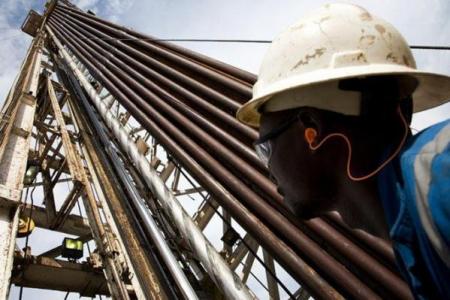by Daniel J. Graeber
Mega-field complex off the West African coast could produce as much as 80,000 barrels of oil per day.
LONDON, Aug. 18 (UPI) -- One of the bigger oil projects off the coast of West Africa has started production from a floating facility offshore Ghana, Tullow Oil announced Thursday.
"I am delighted that the TEN fields have reached first oil," Tullow CEO Aidan Heavey said in a statement.
Oil is now flowing from the Tweneboa, Enyenra, Ntomme fields offshore Ghana to a floating production platform. The milestone was reached for the company on time and on budget, three years after the Ghanaian government signed off on the development plans.
Production from the oil field complex, Tullow said, should gradually move up through the year to the floating facility's peak capacity of 80,000 barrels of oil per day.
Production for the year should average about a quarter of the peak capacity. Any natural gas associated with the field, meanwhile, could be exported within the next two years, though Tullow said it could get gas out early if new export facilities come online by the end of this year.
The company, which has its headquarters in London, cautioned, however, that drilling in the TEN field may stand still because of border disputes between the governments of Ghana and Ivory Coast. A tribunal is reviewing the maritime boundaries, with a decision expected in late 2017. Nevertheless, Tullow said the difficult part of the field's development was in the past.
"I thank the government of Ghana, the Petroleum Commission and our partners -- GNPC, Anadarko, Kosmos and PetroSA -- for their support and co-operation since we made the first discovery in 2009," Heavey said.
A report from the Organization of Petroleum Exporting Countries finds gains in Ghanaian oil production are not enough, however, to prevent an overall decline for Africa. OPEC said it expected all of Africa to produce about 2.1 million bpd this year, a decline of 30,000 bpd from the previous year.
To read the full piece from UPI, click here.

